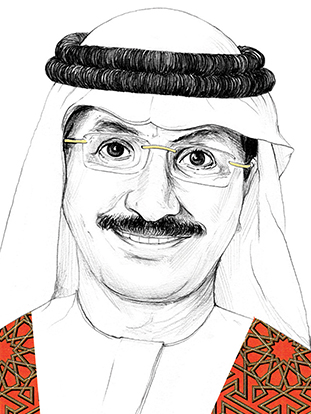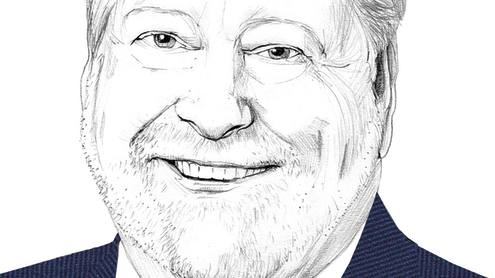As delegates from around the world gather for the International Monetary Fund/World Bank Group general meeting, there is, inevitably, much to discuss in the world of global trade. This year, 2018, has been hectic: the media environment has been dominated by trade war headlines, discussions of fair versus free trade and the potential impacts of ‘tit for tat’ tariffs. Attention, of course, continues to be drawn to the inequalities between rich and poor, and the undeniable gaps between the haves and have-nots.
Emotions run high in these debates. High-level disagreements and fiercely contested viewpoints make good media copy. It is easy to get the impression that the world of global trade is defined by dissension, opposing vested interests and intractable problems.
I think we should take a moment to consider the bigger picture; to remind ourselves that beyond the noise of often negative headlines, there is a larger, more positive story of the progress of global trade. It is a story long in the making and one more characterised by partnerships, collaboration and mutual respect. It is the story of how trade has progressively brought nations closer together, to the benefit of all of us.
The past 2000 years of civilisation have been built on trade, from the Egyptians to the Nabateans, from the Moors and Arabs, to China and the Far East. From the Silk Road to the New Silk Road, now manifesting itself as the Belt and Road initiative. Of course, there have always been differences of perspective and interest, just as there are today. But the underlying storyline is overwhelmingly positive, as I believe it still is today.
The world of global trade is now changing ever faster as we become more interdependent and as we grasp the massive innovation opportunities presented by digital technologies. It is increasingly imperative that we continue to create the partnerships and collaborations that have always driven the progress of nations, companies and individuals engaged in trade. As Henry Ford observed long ago, “Coming together is beginning, staying together is progress and working together is success.”
As we look to the future of global trade, I would highlight three strategic themes as the focus for our shared thinking about building a better tomorrow together.
The expansion of physical infrastructure
My first theme relates to the need to continue to expand and improve the physical infrastructure that enables global trade. The unseen world of trade is built on the global supply chain, with its vital physical infrastructure of port terminals, logistics parks, transport services and so on. We are seeing performance improvements at every stage of this supply chain, from points of goods manufacture to the points of their consumption, from factory door to shop floor. But there is a need to expand this infrastructure to create new opportunities particularly in emerging and developing markets.
As the sixth edition of the World Bank ‘Connecting to Compete’ report underlines, trade logistics built on partnerships oil the wheels of economies, for the benefit of all. Logistics have been with us for centuries. Today, this is a $4300bn industry affecting virtually every country in the world, supporting the physical movement of goods across borders.
From transport to warehousing, brokerage to express delivery, port terminal operations to data and information management: how efficiently goods can move through these systems to their final destinations is a key determinant in a country’s trade opportunities.
Good logistics reduce trade costs, but supply chains are only as good as their weakest link. For developing nations, getting logistics right means improving infrastructure, customs, skills regulations and governance. Logistics performance boosts trade integration and a one-point improvement in a country’s score on the World Bank’s Logistics Performance Index increases trade by an extraordinary 16%.
The same rules apply to landlocked developing countries that face special trade and development challenges arising from their lack of territorial access to the sea and geographical remoteness from international markets. At present, 32 countries belong to the group of landlocked countries, 16 in Africa, 12 in Asia, two in Latin America and two in central and eastern Europe. The key is to move them from being landlocked to becoming land-linked so they can collaborate with neighbours to improve the lot of the whole.
And this is happening. Mali is working with us on the Mali Logistics Hub, to be located on the main road corridor from Dakar in Senegal to Bamako and close to the Dakar-Bamako rail line. It will include an inland container depot and container freight station facility, which will support the growth of the Malian economy by streamlining the import and export of goods and connect through Senegal to international markets.
As a global trade enabler in more than 40 countries with 75% of our business in emerging and faster-growing markets, my own company has found that trade challenges are often compounded by weak transit transport infrastructure, inefficient customs operations and overdependence on the exports of primary commodities.
But, having visited many parts of the world, I am always impressed when I see cross-border collaboration to make logistics and infrastructure happen in a way that surmounts the problems. We know not everything is perfect, but these efforts will undoubtedly improve the fortunes of nations.
The challenges of managing rapid change
My second theme highlights the challenges of managing the rapid changes that are transforming our industry. We need to embrace the opportunities afforded by fast changes as goods are moved around the world in ways which are smarter, faster, safer and more cost-efficient. Technological innovation (particularly digitalisation) is driving growth, helping competitiveness and closing inequality gaps. We can take confidence from many current trends and the latest predictions of distinguished industry forecasters, such as:
• the rapid evolution of on-demand logistics, fuelled by growing consumerism, with global freight transport set to grow fourfold by 2050;
• express delivery for high-priority shipments, which will reach $516bn by 2025;
• demand for air freight for high-priority goods, set to double over the next 20 years;
• digital innovations such as artificial intelligence, blockchain, automation, driverless vehicles and robotics. By 2027, blockchain could store up to 10% of global gross domestic product;
• digital supply chains, which can reduce process costs by 50%, procurement by 20% and increase revenue by 10%;
• every four hours, we produce as much data as all of humanity over our history – and that number is already out of date;
• the Internet of Things will have a total economic impact of $3900bn to $11000bn a year by 2025, with 70% of this in business to business transactions, according to the McKinsey Global Institute.
The importance of trust and mutual respect
My last theme returns to the issues of trust, collaboration and mutual respect on which success in our industry has always been based. Just because we are strangers does not mean we cannot have trust. It is critical that we can trust each other to develop contracts, to ensure good governance and to guarantee that contractual agreements can only be changed with mutual consent. Any unilateral action that moves the goalposts of agreements is to the detriment of all. It damages confidence, it weakens trust and it deters others from making similar investments.
Financial and investment agreements need to look beyond short-term time-horizons to plan for the decades ahead. And for any country to succeed, all parties – government, private sector partners and non-governmental organisations – need to continue to collaborate, on the basis of trust and mutual respect.
As some of the world’s finest minds gather in Bali, I am sure these themes and others will be actively reviewed, digested and analysed. This meeting provides a forum for the kind of collaborative thinking and shared focus that can help us to tackle challenges and grasp opportunities to drive the positive future of global trade.
Sultan Ahmed Bin Sulayem is group chairman and CEO of DP World.







